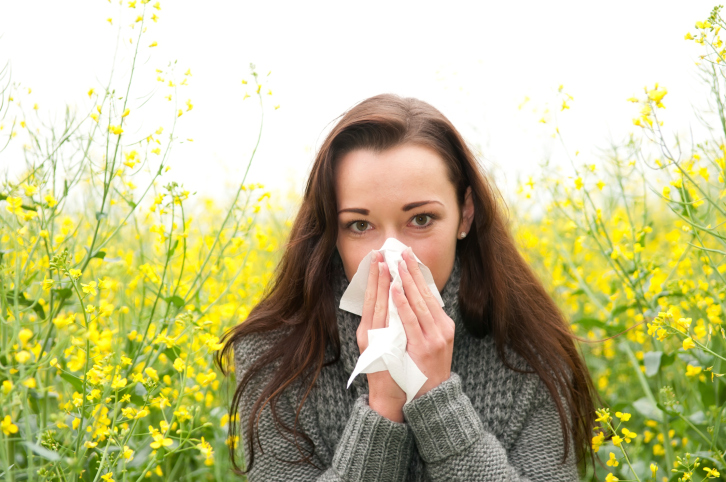Dealing with spring allergies

Anyone with allergies knowns running in the spring can almost make you wish it was winter again. Mold spores, pollen and blooming trees abound, and it can make you think twice about heading out the door, but it doesn’t have to be that way.
Dealing with allergies, especially while out for a run, can be rough. There are so many different things hiding in the trails a runner can be allergic to, but making it work is about planning your runs and learning where you can and can’t handle.
Firstly, if you get a chance, getting a skin test done to see what you’re actually allergic to is usually worth it. Almost half of all people are allergic to something, but there are so many potential alelrgens that knowing what you’re actually allergic to is worth the time. If you’re one of the many people allergic to ragweed, avoiding trails and fields swathed in it will makes your runs much more enjoyable.
If you don’t want to get checked for what you’re allergic to, just try taking note of where your allergies are the worst and try to deduce what might be causing the reaction. If you find a trail that you don’t have problems with you can stick t0 that route more often and try to find others similar to it.
Beyond knowing what you’re allergic to, there are plenty of medications to help fend off symptoms to seasonal allergies. The main type you’re going to want to look to are antihistamines, but there are some to avoid. First-generation antihistamines, such as Benadryl, work great for fending off symptoms of allergies, but they also come with common side-effects of dizziness and drowsiness. These certainly aren’t something you want kicking in midway through your run. Second-generation antihistamines are probably a better choice. These are medications such as Claritin that offer the benefits of keeping your allergy reaction at bay without the tired feeling. Almost all over-the-counter allergy medications are fine for competition, although a few outliers are not allowed.
The same cannot be said about decongestants. Many people take decongestants for allergy symptoms, but taking them elevates heart rate and can be dangerous of runners with high blood pressure. Many decongestants are also on the banned substance list.
Beyond this, check pollen counts in your area through a local weather report. Knowing when they are highest and areas to avoid can help you better plan your runs and avoid the time of day when they are worst.
Nobody likes handling allergies, but getting outside in the sun is something you’ve waited all winter for, so don’t let them hold you back from enjoying the weather. Runs will just take a bit more planning.


